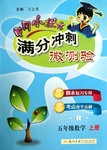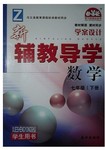题目内容
I am ________ all day's study; I'm considering ________ to the cinema tonight.
- A.fired of, going
- B.tried from, to go
- C.tiring, going
- D.tried, to go
A

练习册系列答案
 小天才课时作业系列答案
小天才课时作业系列答案 一课四练系列答案
一课四练系列答案 黄冈小状元满分冲刺微测验系列答案
黄冈小状元满分冲刺微测验系列答案 新辅教导学系列答案
新辅教导学系列答案 阳光同学一线名师全优好卷系列答案
阳光同学一线名师全优好卷系列答案
相关题目
II.单项填空(共20小题;每小题0.5分,满分 10分)
从四个选项中,选出可以填入空白处的最佳选项,并在答题卡上将该项涂黑。
---I wonder, Mr Adams, ______ you’d mind us asking a few questions.
---______. I am all ears.
|
A.if; Yes, go ahead |
B.whether; No, go ahead |
|
C.that; Sure, go ahead |
D.if; Sure, go ahead |